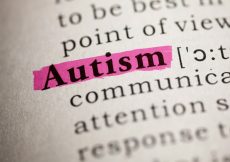Most of the attempts to curtail the threat of coronavirus disease 2019 (COVID-19) focused on the development of vaccines and the implementation of non-pharmaceutical interventions such as lockdowns and social distancing restrictions to limit the transmission of the disease. However, scientists from the Utrecht Institute for Pharmaceutical Sciences are exploring alternate ways to prepare for future pandemics. For example, by maintaining a healthy lifestyle, such as preventing unhealthy foods and smoking and maintaining regular exercise among the population, immune fitness can be as crucial in reducing the impact of a pandemic as functional medicine. The research is published in the Journal of Clinical Medicine.

The studies
During the pandemic, two studies were designed and implemented in the Netherlands, testing variables identified through demographic and clinical data assessments, including age, weight and underlying disease, and immune fitness (assessed through self-reported illness) for correlation with the number and severity of COVID-19 symptoms.
The Corona lockdown: how fit are you? (CLOFIT) study took place first and consisted of an anonymous online survey with participants recruited through Facebook advertisements. These individuals could not be tested for COVID-19 as the study took place very early in the pandemic. The second study was the Corona test street (COTEST) investigation, which took place at testing centers and assessed similar variables using an in-person questionnaire.
In the CLOFIT study, which took place online during the first Dutch lockdown, a total of 1,415 participants were evaluated, all of whom were between 18 and 94 years old. 920 of these individuals reported at least one underlying chronic disease. Women tended to be younger than men and have a lower body mass index (BMI), but also have a lower immune fitness level before (Immune fitness 2019) and during the lockdown (Immune fitness DL). As well as this, women reported more numerous and severe COVID-19 symptoms than men. COVID-19 symptoms were also more prevalent and severe in older individuals, but the correlation was not very strong. Immune fitness was, as expected, strongly correlated with both number and severity. BMI was not found to correlate with either the number or severity of symptoms. A stepwise regression analysis was used to create a model to explain the variance, including sex, age, BMI, underlying disease, and immune fitness as predictor variables. Explaining 26% of the variance, this model found that the three variables that predicted the number of symptoms the most were immune fitness (2019), immune fitness (DL), and having an underlying disease. In a second analysis, these also proved to be the variables that were the best predictors of severity as well.
A second analysis was performed on the COTEST study, conducted during the Delta outbreak at healthcare test locations, with a total of 925 participants. As this was conducted later in the pandemic, the participants could be tested for COVID-19, revealing 88 positive cases. As expected, those who tested positive for COVID-19 reported a significantly higher average number of symptoms than those who tested negative, although 8% were asymptomatic. This study examined immune fitness (2019) and immune fitness at the time of testing (immune fitness T). Significant correlations between immune fitness (2019 and T) and number/severity of symptoms. The correlations between immune fitness (2019) in both groups were of similar magnitude, but the correlations with immune fitness (T) were significantly more robust among negative individuals. Stepwise regression analysis was performed again, using the same predictor variables (with immune fitness (T) replacing immune fitness (DL). This created a model explaining 30.9% of the variance in the number of symptoms and a second model explaining 29.9% of the severity of symptoms. In this study, the most important three factors in both models were immune fitness (T), immune fitness (2019), and sex. Among those that tested positive for SARS-COV-2, the only significant predictor variable was immune fitness (2019).
Conclusions
According to these studies, immune fitness is the most important factor in reducing the severity and number of COVID-19 symptoms. Taking the cohort as a whole, immune fitness (2019) was the most important predictor, although immune fitness (T) was more important in COTEST participants who had positive tests.
In conclusion, the authors assert that governments have a responsibility to not solely rely on pharmaceutical interventions to prepare for the future pandemics predicted by epidemiologists to become more frequent but should also strive to increase the general population’s immune fitness through campaigns that encourage a healthy lifestyle.


































